It's still very hard to define life, but science has made great strides toward revealing many of its characteristics and processes. Here are some basics about the most complex phenomenon we know: life's origin, characteristics, structure, and states of animacy.
SftP Videos: Life
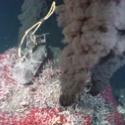
"Shocking" News from Deep-Sea Hydrothermal Vents
07/10/12 In probably the most extreme environmment on Earth, organisms are thriving. Peter Girguis explains how.....

A Spotlight on the Impact of the Wildlife Trade
07/14/20 The persistence of the international wildlife trade is destructive for wildlife, ecosystems, environment, and human health. Maria Ivanova and Candace Famiglietti

Advanced Research on the Origin of Life
05/10/10 Two young scientists at the famous Jack Szostak Lab explain research issues, Matthew Powner and Utay Budin

All about Jellyfish
08/10/20 Get the real facts about those about lion's mane jellyfish near Massachusetts beaches, but get the real science about jellyfish in general: their amazing biology and their role in marine ecosystems. Laurence Madin

Ancient Environmental Shifts and Evolution
05/03/21 A warming climate led to the emergence of grasslands, which led to major evolutionary changes. Aly Baumgartner
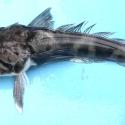
Antarctic Fishes: Models for Climate Change and Human Disease
07/09/13 the unique "antifreeze" blood and skeletal mutations of the Antarctic Icefishes provide insights into both climate change adaptations and human disease. H. William Detrich, III

Art and Nature: A Special Exhibit
08/30/18 Boston-area artists Susan Heideman and Michelle Lougee discuss their fascinating exhibit, "The Life of Forms."
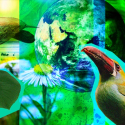
Biodiversity in the Sixth Mass Extinction
03/19/24 A prominent biologist explains the crucial importance of biodiversity for life on Earth, and how the sixth mass extinction fractures that stability. Michael Reed.
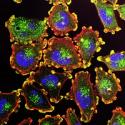
Cell Architecture: Self-Organization and Scaling
10/08/19 A cell's size and the proportions of its components are strictly determined, but where do the rules come from? Scientists are still trying to figure that out. Jané Kondev
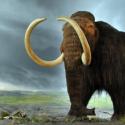
Conservation Lessons from Ice-Age Extinctions
04/26/11 Was there a human factor in the Ice Age extinctions of large mammals? ............ Sharon Levy

Earth Life and Weird Life
12/17/15 The compelling search for entirely new forms of life elsewhere in our solar system and the universe. David Toomey
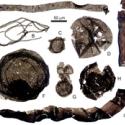
Enigmas of Life: Getting It Started and Becoming Complex
08/09/16 An investigation of the two major questions about the origin of life, and their relevance in search for life elsewhere in the universe. Zachary Adam
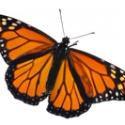
Evolution and Environmental Toxins
04/22/15 A toxicologist explains why some organisms thrive in an environment that endangers most species. Emily Monosson
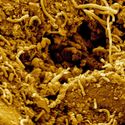
Exploring the Dark Matter of the Microbial World
10/18/16 All life depends on a microbial foundation. So does development of new antibiotics. But 99 percent of microbes are unknown. Slava Epstein

Finding Their Way: How Migratory Creatures Get Where They’re Going
04/19/22 Because of a special biological feature called magnetoreception, migratory birds and other creatures are able to navigate enormous distances without getting lost. How does this capacity to “read” Earth’s magnetic field work, and is that the only map to aid migration? Charles Walcott
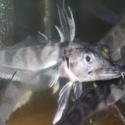
Great Adaptations
02/08/22 Some species have an exceptional ability to adapt to extreme environmental conditions, an advantage that endowed by unique features of their DNA. Certain Antarctic marine creatures provide hope for climate change adaptations. H. WiIliam Detrich
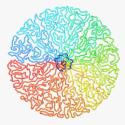
How DNA is Folded in Cells and Why it Matters
10/14/14 How DNA is folded in the cell may shed light on cancer and other diseases. Jané Kondev
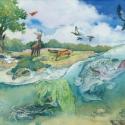
How Ecosystems Work: from the Smallest to the Largest Scales
12/14/20 Ecological systems are the archetypal complex systems. And regardless of scale and diversity --from microbial systems to rain forests—they share common patterns and dynamics. James O'Dwyer
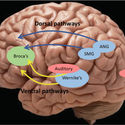
How the Brain Produces Language --and What Can Go Wrong
11/17/15 The science of neural networks reveals the awesome complexity of normal speech production and also brings help for language disorders. Frank Guenther
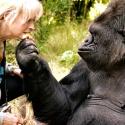
Human Language, Animal Communication
04/26/21 The evolution of the human language apparatus, comparison of human language and animal communication, and explanation of the Neanderthal language controversy. Philip Lieberman

Infant Fossil Teeth: Clues to Ancient Human Development
11/13/13 Ancient infant teeth reveal the importance of weaning patterns in human evolution. Tanya Smith
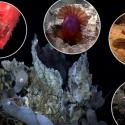
Infinitely Small to Infinitely Great: The Search for Microbial Life on Other Worlds
04/10/18 A collaboration of ocean and space scientists that will advance our understanding of exo-worlds, such as Enceladus and Europa. Peter Girguis
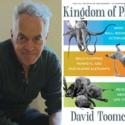
Kingdom of Play
05/06/24 WGBH Forum Network webinar. All sorts of animals engage in imaginative types of play. Is this behavior just creature-entertainment, or is it important for development and bonding? David Toomey
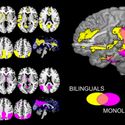
Language Acquisition: How Many Languages Can You Learn?
10/10/18 The acquisition of even one language is very complicated. But there are some --called hyperpolyglotals-- who learn dozens of languages. How does the brain do this? Evelina Fedorenko
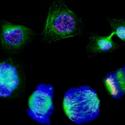
Leaving It Up to Chance: How Cells Make Decisions
03/18/14 Cells make decisions that turn out to be random. Jané Kondev explains the implications of that surprising discovery.
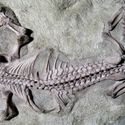
Mass Extinctions
04/09/19 What caused Earth's five mass extinctions --and most important--are we headed for a sixth? Andrew Knoll
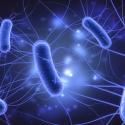
Microbe Evolution
02/12/13 How microbes and their communities evolve and what the process means for us. Christopher Marx
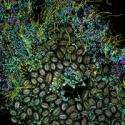
Microbial Ecosystems: The Foundation of Life on Earth
06/01/23 Although all life depends on microbial ecosystems, there are many unknowns about the mechanisms by which these ecosystems develop and evolve in diverse environments. Otto Cordero
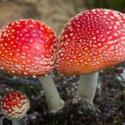
Mushrooms and Other Fungi: Their Role in Nature
10/05/17 A tour of the fascinating world of mushrooms. This is way beyond the supermarket. David Hibbett

Nectar, Pollen and the Health of Bees
07/10/19 Nectar and pollen are sources of food for bees, but some of these sources may also help to reduce certain pathogens. Lynn Adler
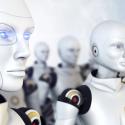
Our Robots, Ourselves
02/10/16 The author of "Our Robots, Ourselves" discusses the limits of robot autonomy. David Mindell

Reconstructing Evolution: A Molecular Time Machine
02/23/16 Tracing ancient genetic changes through extinctions and speciation events to reconstruct our DNA history. Betul Kacar

Reconstructing the Ancient Viking Colonies
05/31/22 How do archaeologists reconstruct the far-flung colonies of the ancient seafaring Norsemen/Vikings? Douglas Bolender
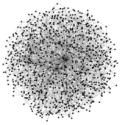
Scale-Free Complex Networks: Albert-László Barabási, Ph.D.
08/05/13 A visit to the Barabási Lab at Northeastern University to learn how scale-free complex networks affect scientific perspectives
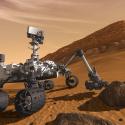
Searching for Bio-Molecules
04/29/15 At the Summons Lab at MIT, scientists probe soil and rock samples from both ancient Earth and --using remote instruments-- Mars for bio-molecules. Roger Summons
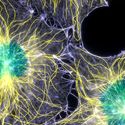
Self-Defense Mechanisms of the Cell
12/14/10 The cell's self-defense repair kit against hereditary, environmental, and other threats. Sushil Alimchandani
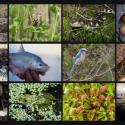
Sustaining Life: Biodiversity and Human Health
06/07/11 Aaron Bernstein, M.D, MPH and author explains how the unprecedented loss of biodiversity impacts human health.
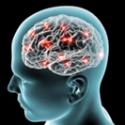
The Biological Mind
03/27/18 The "mind" is not an isolated entity; it is connected to a physical-social environment. Alan Jasanoff
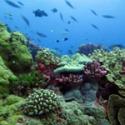
The Co-Evolution of Organisms and Their Environments
03/08/16 Reconstructing the relationship between biological evolution and geology, climate, environment. Andrew Knoll

The Evolution of Photosynthesis
10/19/10 How photosynthesis --and life-- emerged in Earth's ancient chemical environment. Tanja Bosak and Alexander Petroff
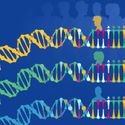
The Human Genome Project
09/20/11 The challenge for genomic studies today is how to manage the vast collection of data. John Quackenbush
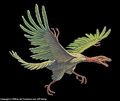
The Jurassic Genome
12/09/09 Genetic material in ancient fossils yields an amazing profile of extinct organisms. Chris Organ

The Mystery of Animal Migration
09/17/24 How migratory creatures navigate so accurately to their seasonal destinations, sometimes thousands of miles away, is still often a mystery. What do scientists know, and what are they still trying to discover? Charles Walcott
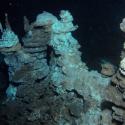
The Potential Uses of Deep-Sea Microbes
09/24/15 A leader in the study of exotic microbes at hydrothermal vents explains the significance and the potential of these life forms. Peter Girguis

Understanding How Life Began
04/09/10 Molecules in meteorites met with an optimal chemical environment on Earth. Alonso Ricardo
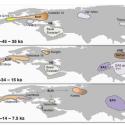
Using Genetics to Trace Human History
07/08/16 An explanation of how modern genetics analysis confirms ancient human migrations, such as the Indo-Europeans. Nick Patterson
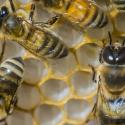
What Happened to the Honeybees?
01/20/15 The decimation of honeybee colonies is also a public health warning about pesticides. Chensheng (Alex) Lu

Why AI Can Seem Sentient
05/10/23 Although technologies such as ChatBots are not conscious, their sophisticated communications can seem human enough to fool people. That raises concerns. Nir Eisikovits
